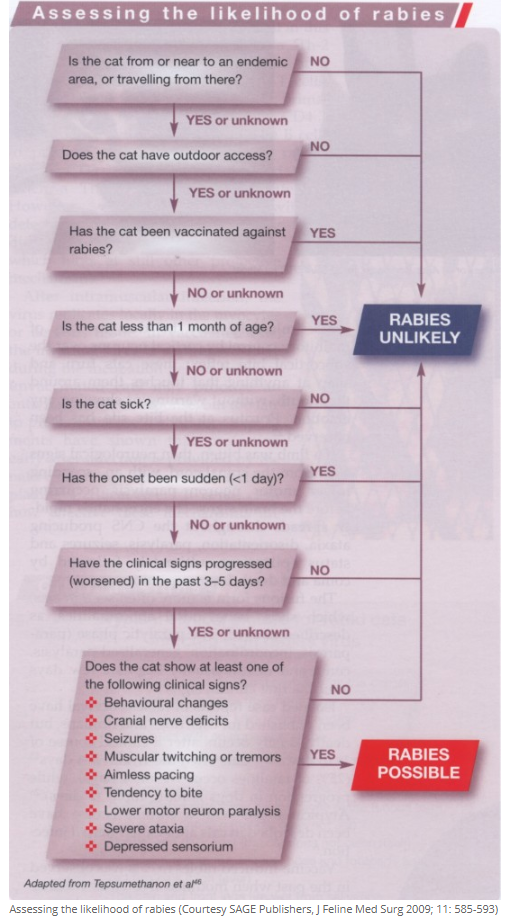Hi all,
I have adopted a stray cat from an endemic country.
The cat has been dumped in a park since 2 month-old and has been living there until some rescuers took her home to foster. At this time he was almost 1 year old and they said they gave him a rabies shot at that time (which I can not trust actually). after 6 months now the cat has made it to Germany with me and I already have two other cats as well.
I am actually now so worried of Rabies virus.
Although the cat shows no single sign of rabies but I am worried he is still carrying the virus because I read that the incubation period can be even 2 years in cats. Also, he got the vaccination at 1 year old at which time he might have already been exposed tot he virus.
Does any body have any info about this?
So the mail question is does rabies vaccine help in case an animal might have been already exposed to virus?
Do you think i should vaccinate all three cats again for rabies? Does it help at all?
I have had phobia of rabies since I read scary stuff about it in internet and now I cannot just stop getting panicked about it, I am mostly concerned if new cat is infected and the virus is transmitted to my cats through saliva of new cat although he is vaccinated and shows no symptoms of rabies. is this situation at all possible?
I have adopted a stray cat from an endemic country.
The cat has been dumped in a park since 2 month-old and has been living there until some rescuers took her home to foster. At this time he was almost 1 year old and they said they gave him a rabies shot at that time (which I can not trust actually). after 6 months now the cat has made it to Germany with me and I already have two other cats as well.
I am actually now so worried of Rabies virus.
Although the cat shows no single sign of rabies but I am worried he is still carrying the virus because I read that the incubation period can be even 2 years in cats. Also, he got the vaccination at 1 year old at which time he might have already been exposed tot he virus.
Does any body have any info about this?
So the mail question is does rabies vaccine help in case an animal might have been already exposed to virus?
Do you think i should vaccinate all three cats again for rabies? Does it help at all?
I have had phobia of rabies since I read scary stuff about it in internet and now I cannot just stop getting panicked about it, I am mostly concerned if new cat is infected and the virus is transmitted to my cats through saliva of new cat although he is vaccinated and shows no symptoms of rabies. is this situation at all possible?








 I assume you also got an "Impfpass/EU Heimtierausweis" (vaccination record in passport form) when you adopted her - it should be laminated to prevent manipulation. If you really have doubts about her having been vaccinated, you can ask your county "Veterināramt" (County Veterinary Office) to have a look at the passport and confirm whether it looks authentic. If she was brought in by a rescue organization rather than a private individual, the rescue had to be authorized to do that. The Veterinäramt can ascertain whether it had that "Einfuhrgenehmigung" (import license).
I assume you also got an "Impfpass/EU Heimtierausweis" (vaccination record in passport form) when you adopted her - it should be laminated to prevent manipulation. If you really have doubts about her having been vaccinated, you can ask your county "Veterināramt" (County Veterinary Office) to have a look at the passport and confirm whether it looks authentic. If she was brought in by a rescue organization rather than a private individual, the rescue had to be authorized to do that. The Veterinäramt can ascertain whether it had that "Einfuhrgenehmigung" (import license).